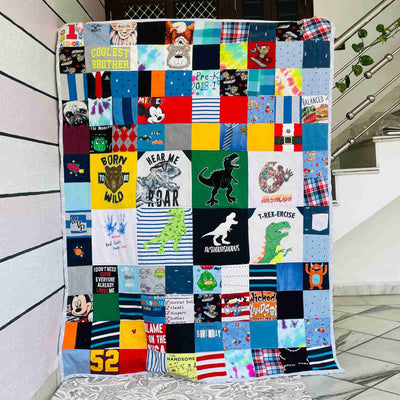7 Practical Ways To Stop Gaming Addiction in Kids
Do your kids spend more time on the laptop or PlayStation rather than hanging out with their friends? If the answer is yes, then it is a high chance that your child is suffering from gaming addiction. Nowadays, it is normal for kids to want to play video games or online games, but parents should pay attention to lines being crossed into gaming addiction. While it is fun and educational to play video games, excessive gaming can severely harm a child's mental and physical health.
Ways to Curb Gaming Addiction
You can take some time out and encourage them to do something creative and mentally stimulating. Have them help you with the house chores, such as setting the table for dinner or folding the laundry. Motivating them to go outside and play with their friends is helpful in many ways. Other outdoor activities that can take their mind off gaming are gardening, cycling, learning new skills and cooking.
2. Engage in Pretend PlayEngaging your kids in pretend play gives you the opportunity to spend some quality time with them. In doing so, kids spend more time away from their gaming consoles and doing more physical activities. In the process of pretend play, offer them tasks and make them earn the privilege to play video games but for a limited time. For example, you can allow your child to play for an hour if they read a book or complete their homework on time.
3. Develop Reading HabitsFostering a culture of reading in the family is bound to make the right atmosphere for kids to find an escape from the video games. Reading can enhance their imagination, improve their discussion abilities and offer a creative alternative to gaming. After they are done reading, discuss the stories with them and become a part of their imagination and sharing world. This is efficient in curbing their gaming addiction!
To begin with, limit their screen time to strike a balance between online and offline pursuits. So they can spend time doing things other than using technology and screens and can minimize their gaming routine. You can demonstrate to your children that there are times when we should be present in the real world and times when we should be using technology. These are the habits you want your children to develop.
5. Address Underlying IssuesHave a conversation after laughing together over a joke, eating your favorite snack or watching a show together. Next, make an effort to listen more than talk. It is crucial that your child feels heard. Last but not least, before offering advice, remember to collaborate with your child and get their permission on how you should respond. They might just want to vent, or they might want to decide for themselves what to do next, with your help as a backup.
6. Build a Positive Coping MechanismTeaching children how to deal with their emotions is just as important as teaching them how to identify and express their emotions. Employ coping strategies to help them control their emotions and deal with their stress. Encourage them to practice healthy habits like getting enough quality sleep, eating a well-balanced diet and being physically active. In doing so, they will make an effort to diminish their love for gaming and focus more on dealing with their problems.
7. Offer Discovery Learning ActivitiesAsking and encouraging children to ask and respond to the question "what if?" is essential for discovery learning activities. One area where implementing discovery learning might be efficient is art. Buy a print of fine artwork, like Van Gogh's Starry Night. Encourage your kids to examine the painting and come up with their own interpretations. Take note of the medium that the children used to recreate the painting and pose questions to them.
Consequently, numerous parents are concerned about their children's gaming habits. However, every problem has a solution and parents need to know that patience, love and right practices can do wonders for their little ones!






